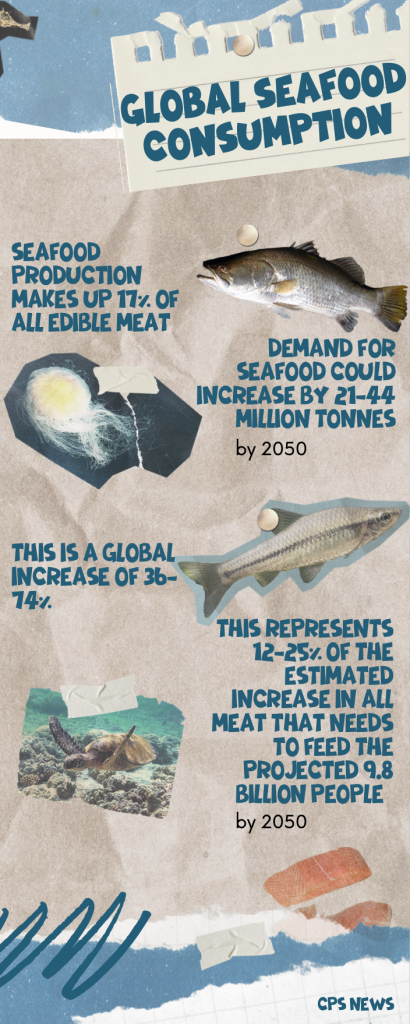By Ernst Calitz
It is no secret that the global fish supply is running dry. The dwindling supply of marine life populations is causing a crisis in many communities and cultures that rely on the oceans for their livelihood.
Europe and its coastal regions that rely heavily on fish products are especially vulnerable. The continent currently imports three times more seafood products than it produces, and this number is expected to rise in the near future, as the global demand for seafood is projected to double by 2050.
This projected food crisis is further exacerbated by the fact that nearly half of the European Union’s marine habitats have been assessed as near threatened or endangered. The threat stems from heavy pollution, overfishing, and a rise in aquaculture.

With pollution being one of the leading causes of marine habitat decay, a great deal of large European cities is struggling to combat the ever-growing threat. Cities such as Denmark’s capital, Copenhagen, have fallen short of meeting its 2025 goal of being carbon neutral.
Copenhagen, and Denmark, have long been hailed as forerunners in combating climate change and promoting a more “green” and sustainable future – which worsens the prospects for other European nations to do the same – seeing as one of the forerunners in the field is failing to adhere to its own standards.
One of Copenhagen’s trendsetters in holistic cuisine, Alchemist, is partnering with local scientists to create a sustainable alternative to seafood products that are as similar as possible to the real thing. The team will aim to create the product using the mycelium of fungi on seaweed to mimic the taste and texture of its natural counterpart.
The project received funding from the Good Food Institute (GFI) in 2022 and is spearheaded by Dr. Leonie Johanna Jahn. She commented that “I think there’s huge potential here – there aren’t a lot of seafood alternatives on the market but there’s certainly a need for them. This is also an area that hasn’t really been explored before.”
Deigo Prado, the head of research at Alchemist, stated that the team was ambitious, hoping to create a product that is “unique, delicious and good enough to be served at a fine dining restaurant, using natural ingredients with seaweed providing flavours of the sea and the mycelium adding to an attractive texture.”
The restaurant is no stranger to using food in a sustainable way. “At Alchemist we strive to serve seafood in new ways, using for example the cod jaw, langoustine shells, and king crab tails to send a message about using otherwise discarded parts of different species in a sustainable way.” Comments Rasmus Munk, the head chef and co-owner of Alchemist.
Seren Kell, Science and Technology Manager at the Good Food Institute Europe, added: “I will be fascinated to see the outcome of Dr. Jahn’s research. Seafood is an area where we urgently need to see innovation, and there are huge opportunities for companies and governments to invest in further research to develop plant-based and cultivated seafood that can help meet growing demand in a sustainable way.”
The team is set to unveil the new product in the near future.
This article is aimed at an audience who is interested in the environment and new modern experiences (so mostly young upper-middle-class tourists). It could be published on Vice, as their audience typically falls under this umbrella.